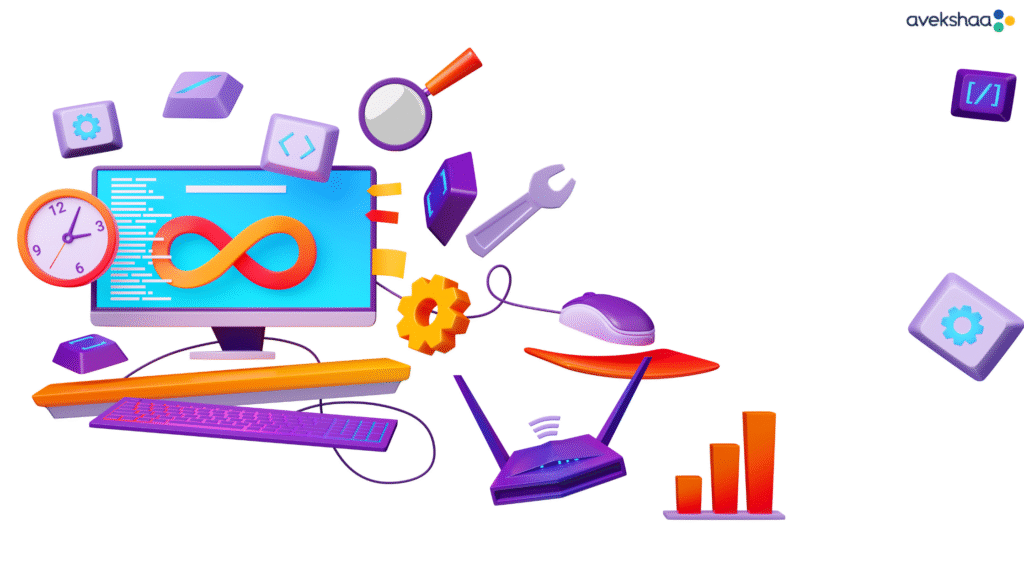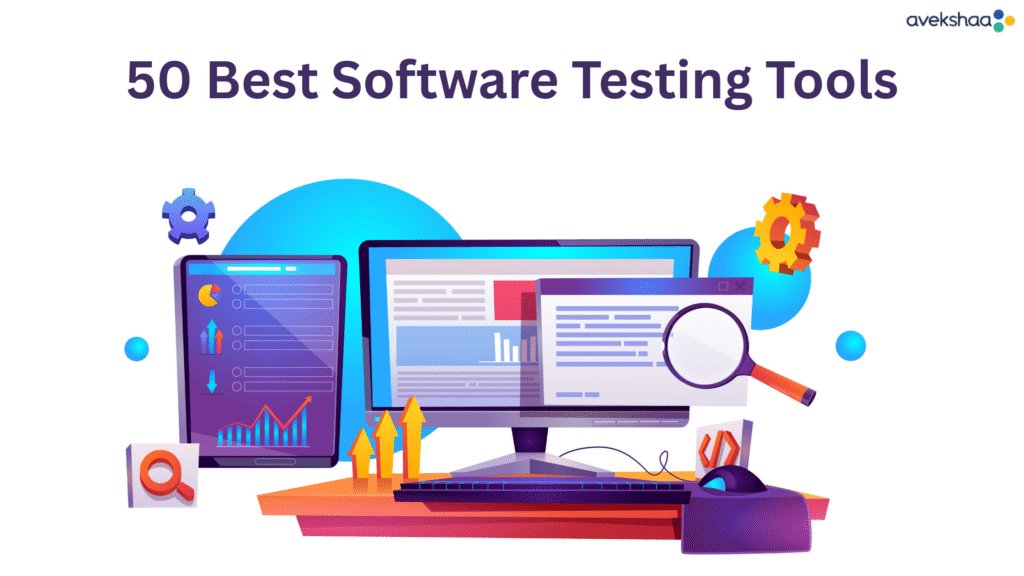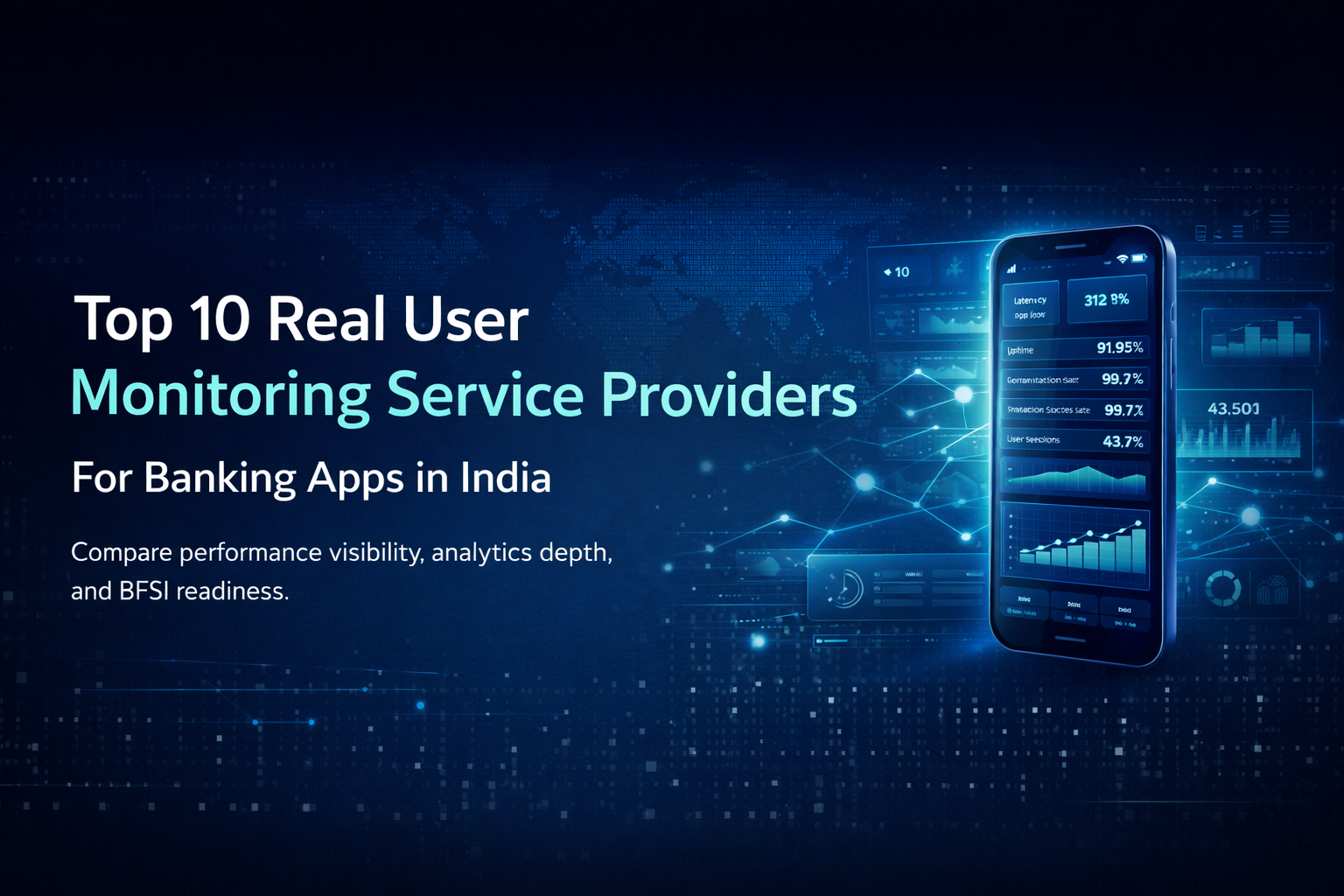Quick Summary (Executive Overview)
-
- Why it matters: In 2025, software testing is not just about catching bugs, it’s about ensuring apps deliver fast, secure, and reliable experiences at scale. A poor QA process can cost enterprises millions in downtime, breaches, and lost users.
-
- Our selection method: These 50 tools were chosen based on popularity, feature depth, global adoption, integration capabilities, and future-readiness (AI + DevOps).
-
- Categories covered: Functional testing, performance testing, security, APIs, mobile, CI/CD, test management, exploratory testing, AI-driven QA, and code quality tools.
-
- Best for different needs:
-
- Startups / SMBs: Open-source tools like Selenium, JMeter, and Postman.
-
- Enterprises: Robust platforms like UFT One, LoadRunner, and TestRail.
-
- Future-focused teams: AI-driven tools like Testim, Mabl, and Applitools.
-
- Best for different needs:
Software Testing in 2025: Smarter, Faster, AI-Driven
In 2025, software testing is no longer just about finding bugs, it’s about ensuring business resilience, user trust, and performance at scale.
With AI-powered applications, multi-cloud platforms, and rising user demands, QA must adapt to be:
-
- Automated for speed and accuracy.
-
- Secure to withstand cyber risks.
-
- Scalable for cloud-native environments.
-
- User-focused to deliver seamless experiences.

The right testing tools make this possible, and this guide highlights the top 50 solutions across every Quality Assurance category.
Quick Comparison: Best 10 Tools for Software Testing
| Tool | Category | Key Strengths | Best For |
|---|---|---|---|
| Selenium | Functional Testing | Open-source, flexible, supports multiple languages & browsers | Web application automation |
| TestComplete | Functional Testing | Powerful GUI automation, cross-platform, script/no-code options | Enterprises needing all-in-one automation |
| JMeter | Performance Testing | Open-source, scalable load testing, wide community support | Load and performance testing of web apps |
| LoadRunner | Performance Testing | Enterprise-grade, integrates with CI/CD, supports complex systems | Large-scale enterprise performance testing |
| Burp Suite | Security Testing | Industry-standard for penetration and vulnerability testing | Security-focused QA teams |
| Postman | API Testing | Easy API design & testing, automation-ready, great for teams | Developers & testers working with APIs |
| Appium | Mobile Testing | Open-source, cross-platform for iOS & Android | Mobile app testing across devices |
| BrowserStack | Cross-browser & Mobile | Cloud-based, instant access to 3000+ devices & browsers | Teams needing scalable device/browser testing |
| Mabl | AI-Powered Testing | Self-healing tests, smart automation, strong CI/CD integration | Agile/DevOps teams adopting AI in QA |
| Applitools | Visual/AI Testing | Visual AI for UI validation, cross-browser testing | Teams ensuring flawless UX & design consistency |
The top 50 Best Software Testing Tools
Functional Testing Tools
These tools focus on validating that applications work as intended, meeting functional requirements and user expectations.
-
- Selenium – Popular open-source automation tool for web applications.
-
- TestComplete – Comprehensive automation tool for desktop, mobile, and web apps.
-
- Ranorex Studio – Easy-to-use GUI test automation tool with cross-platform support.
-
- Katalon Studio – Low-code platform for test automation across web, mobile, and APIs.
-
- UFT One (Unified Functional Testing) – Enterprise-grade tool from Micro Focus.
Performance Testing Tools
Performance is crucial for modern applications. These tools ensure scalability, speed, and stability under real-world loads.
-
- JMeter – Widely used open-source load and performance testing tool.
-
- LoadRunner – Enterprise-grade performance testing platform.
-
- NeoLoad – Cloud-ready load testing tool for web and mobile apps.
-
- BlazeMeter – Performance and load testing platform based on JMeter.
-
- Locust – Python-based performance testing framework.
Security Testing Tools
With cyber threats on the rise, security testing has become a non-negotiable aspect of QA.
-
- OWASP ZAP (Zed Attack Proxy) – Open-source security testing tool.
-
- Burp Suite – Leading tool for penetration and vulnerability testing.
-
- Netsparker – Automated web application security scanner.
-
- Acunetix – Detects a wide range of web vulnerabilities.
-
- Fortify – Comprehensive enterprise security testing platform.
API Testing Tools
APIs are the backbone of modern software systems. These tools validate API functionality, performance, and security.
-
- Postman – Widely adopted tool for API development and testing.
-
- SoapUI – Open-source tool for SOAP and REST API testing.
-
- Apigee – Google Cloud’s API lifecycle management platform.
-
- Karate – Framework combining API test automation, mocks, and performance testing.
-
- RestAssured – Java-based library for REST API testing.
Mobile Testing Tools
Mobile-first experiences demand specialized tools for testing across devices, OS versions, and networks.
-
- Appium – Open-source mobile automation framework.
-
- Espresso – Android-specific UI testing tool by Google.
-
- XCUITest – Apple’s testing framework for iOS apps.
-
- Kobiton – Cloud-based mobile device testing platform.
-
- BrowserStack – Cross-browser and mobile device testing in the cloud.
Continuous Testing & CI/CD Integration Tools
Testing integrated with DevOps pipelines ensures faster delivery with higher quality.
-
- Jenkins – Automation server enabling continuous integration and testing.
-
- CircleCI – CI/CD platform with strong testing capabilities.
-
- GitLab CI – Built-in CI/CD solution with test orchestration.
-
- Travis CI – Popular CI/CD solution with open-source support.
-
- Azure DevOps – Microsoft’s DevOps platform with integrated testing tools.
Test Management Tools
Organizing, tracking, and reporting test activities requires efficient test management platforms.
-
- TestRail – Comprehensive test case management tool.
-
- qTest by Tricentis – Enterprise-grade test management solution.
-
- Zephyr – Test management add-on for Jira.
-
- PractiTest – End-to-end test management and reporting tool.
-
- TestLink – Open-source test management platform.
Exploratory & Usability Testing Tools
These tools help teams perform user-centric and exploratory testing effectively.
-
- Test IO – Crowdsourced testing platform.
-
- UserTesting – Captures real user insights for usability testing.
-
- Lookback – Usability testing with live feedback options.
-
- Playwright – Enables exploratory browser automation testing.
-
- Loop11 – Tool for remote usability testing.
AI-Powered Testing Tools
Artificial intelligence is increasingly transforming Digital Quality Assurance by enabling predictive insights and self-healing tests.
-
- Testim – AI-driven test automation platform.
-
- Mabl – Intelligent testing tool with self-healing capabilities.
-
- Functionize – AI-powered testing for web and mobile.
-
- Applitools – Visual AI testing for UI validation.
-
- AccelQ – AI-driven continuous testing platform.
Code Quality & Unit Testing Tools
Ensuring code quality through unit tests is a key step in modern QA pipelines.
-
- JUnit – Popular unit testing framework for Java.
-
- NUnit – Unit testing framework for .NET applications.
-
- PyTest – Python-based unit testing framework.
-
- Mocha – JavaScript test framework for Node.js apps.
-
- RSpec – Behavior-driven testing framework for Ruby.
How to Choose the Right Software Testing Tool for Your Business
When deciding, consider:
-
- Project size & complexity – small projects may thrive with open-source tools, enterprises may need premium suites.
-
- Integration needs – does it work with your CI/CD and DevOps pipeline?
-
- Team expertise – is training required, or can your testers pick it up fast?
-
- Budget & scalability – will it grow with your business needs?
Pro tip: While open-source solutions like Selenium or JUnit are great for flexibility, enterprise-grade tools like Tricentis Tosca or Micro Focus UFT may offer stronger automation and reporting capabilities. Many software testing companies leverage a mix of these tools to align with client needs, industry standards, and long-term scalability.
The Future of Software Testing Tools in 2025 and Beyond
The landscape of QA is rapidly evolving with AI, machine learning, and DevOps-driven practices reshaping testing processes. By 2025, we are seeing smarter testing tools that offer predictive analytics, self-healing test scripts, and tighter integration with CI/CD pipelines.
This evolution ensures faster releases without compromising quality. Tools are also becoming more business-aware, moving beyond technical correctness to validate real-world user experiences, reliability, and performance.
Staying ahead means adopting tools that not only support current requirements but also adapt to future testing paradigms.
Conclusion
The software testing ecosystem in 2025 is richer, smarter, and more adaptable than ever before. From traditional automation to AI-powered solutions, these 50 tools cover every aspect of quality assurance, ensuring functional correctness, security, performance, and user satisfaction.
Choosing the right set of tools depends on your specific project requirements, team skills, and business goals. By leveraging these solutions effectively, enterprises can deliver reliable, secure, and high-performing applications at scale.
To maximize value, organizations need more than just tools, they need the right QA strategy, expert guidance, and a focus on aligning testing with business outcomes.
If you’re looking to optimize your QA processes and ensure your applications perform seamlessly in real-world conditions, Avekshaa Technologies can help you with tailored testing and performance engineering solutions.
Frequently Asked Questions (FAQs)
Software testing tools are applications that help testers automate, manage, and execute testing processes to ensure software meets quality standards before release.
They save time, improve accuracy, reduce manual effort, and ensure consistent results. This helps teams deliver reliable, high-performing applications faster.
There are various types, including test automation tools, performance testing tools, security testing tools, functional testing tools, and defect tracking tools.
Consider factors like project requirements, scalability, integration with existing systems, ease of use, cost, and support for automation before making a decision.
Open-source tools are cost-effective and flexible, but paid tools often provide advanced features, better customer support, and enterprise-level scalability. The right choice depends on your project needs.
Yes. Even small businesses can improve software quality and reduce release risks by using lightweight or open-source testing tools that fit their budget.
No. While tools automate repetitive tasks, manual testing is still essential for exploratory, usability, and user-experience-focused testing.
Testers usually need knowledge of testing methodologies, scripting or programming skills (for automation), and an understanding of CI/CD workflows to make the most of these tools.
Modern tools integrate seamlessly into Agile and DevOps pipelines, enabling continuous testing, faster feedback loops, and quicker releases.
The future is shifting toward AI-driven testing, self-healing test scripts, predictive analytics, and smarter integration with cloud and DevOps platforms.


